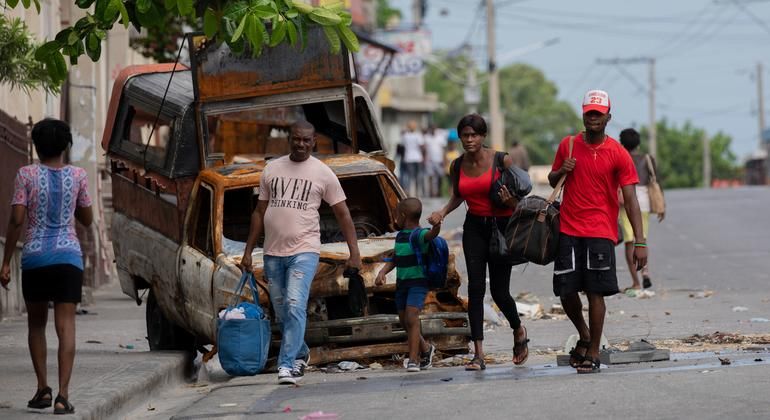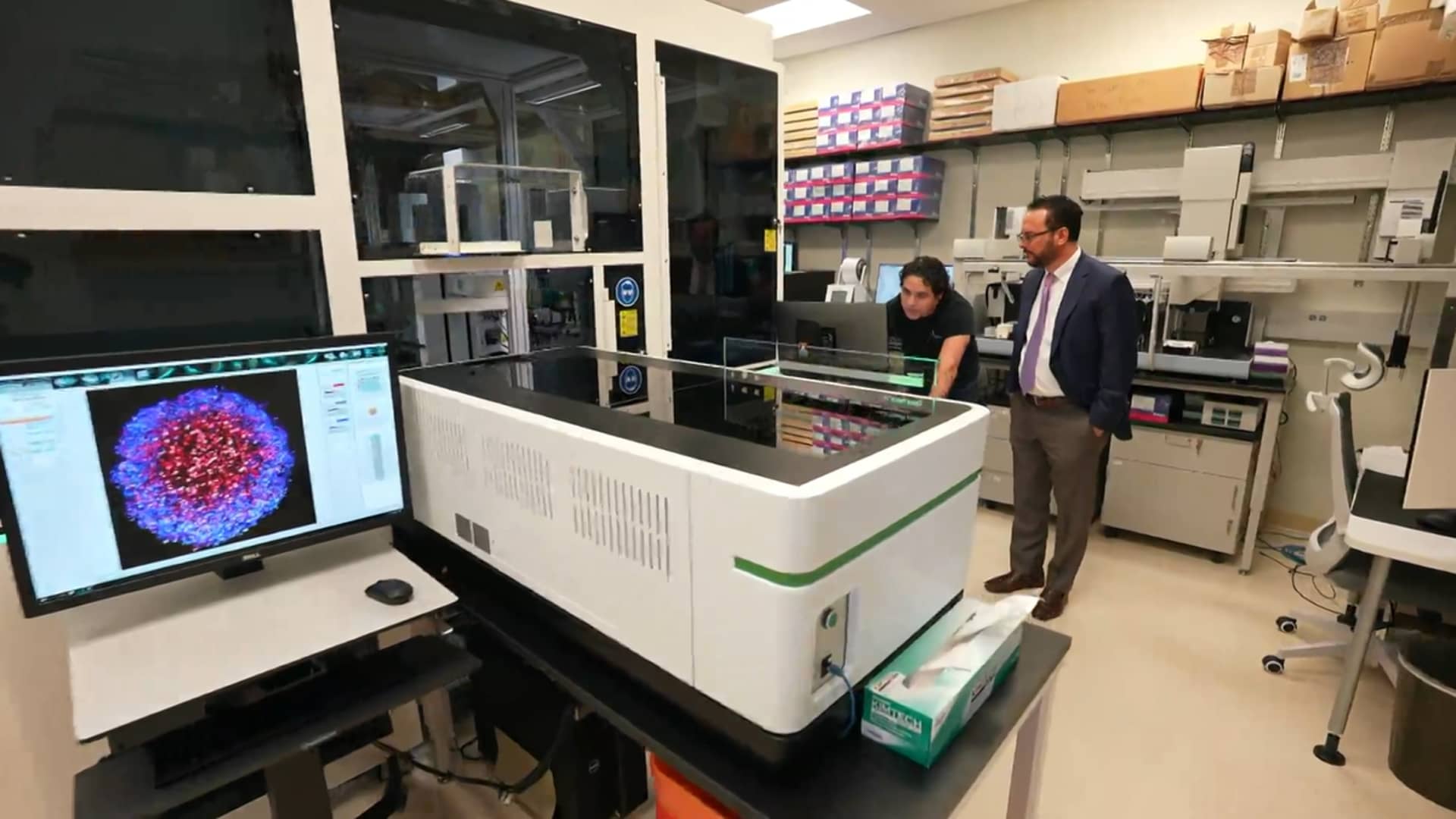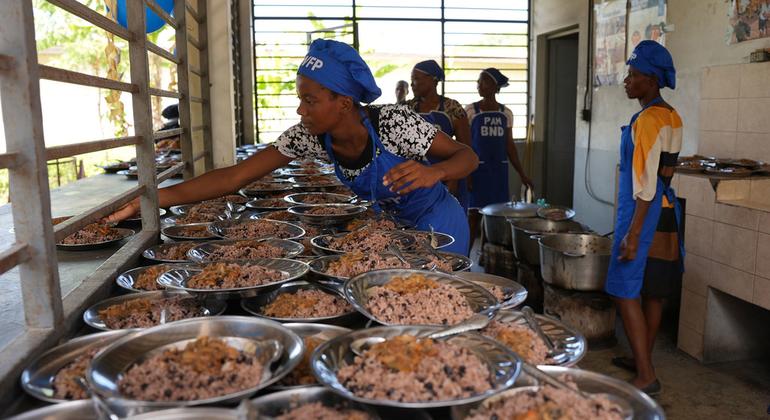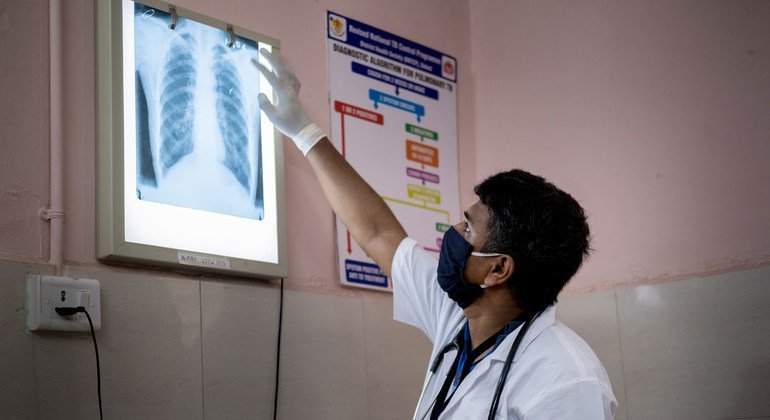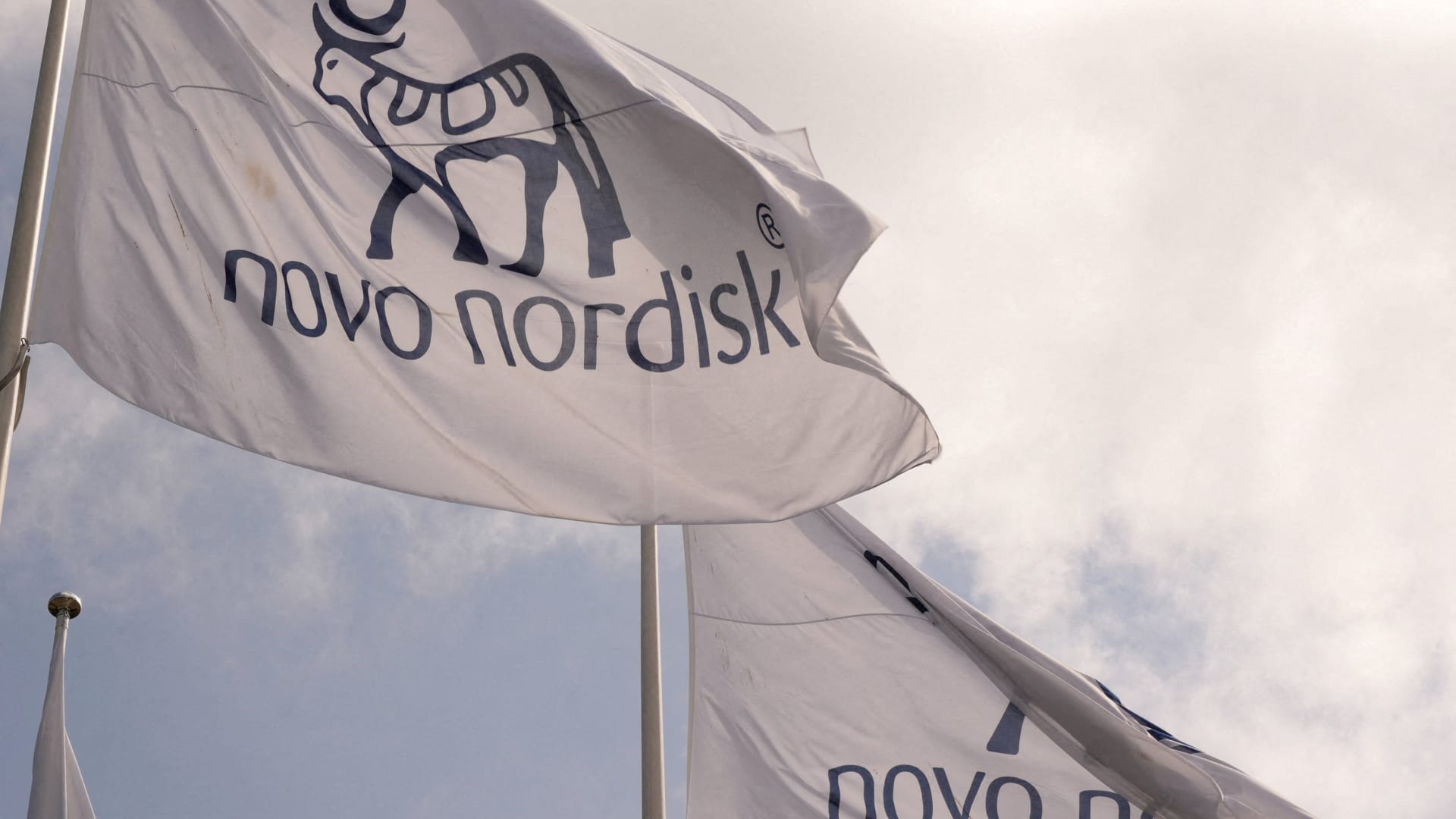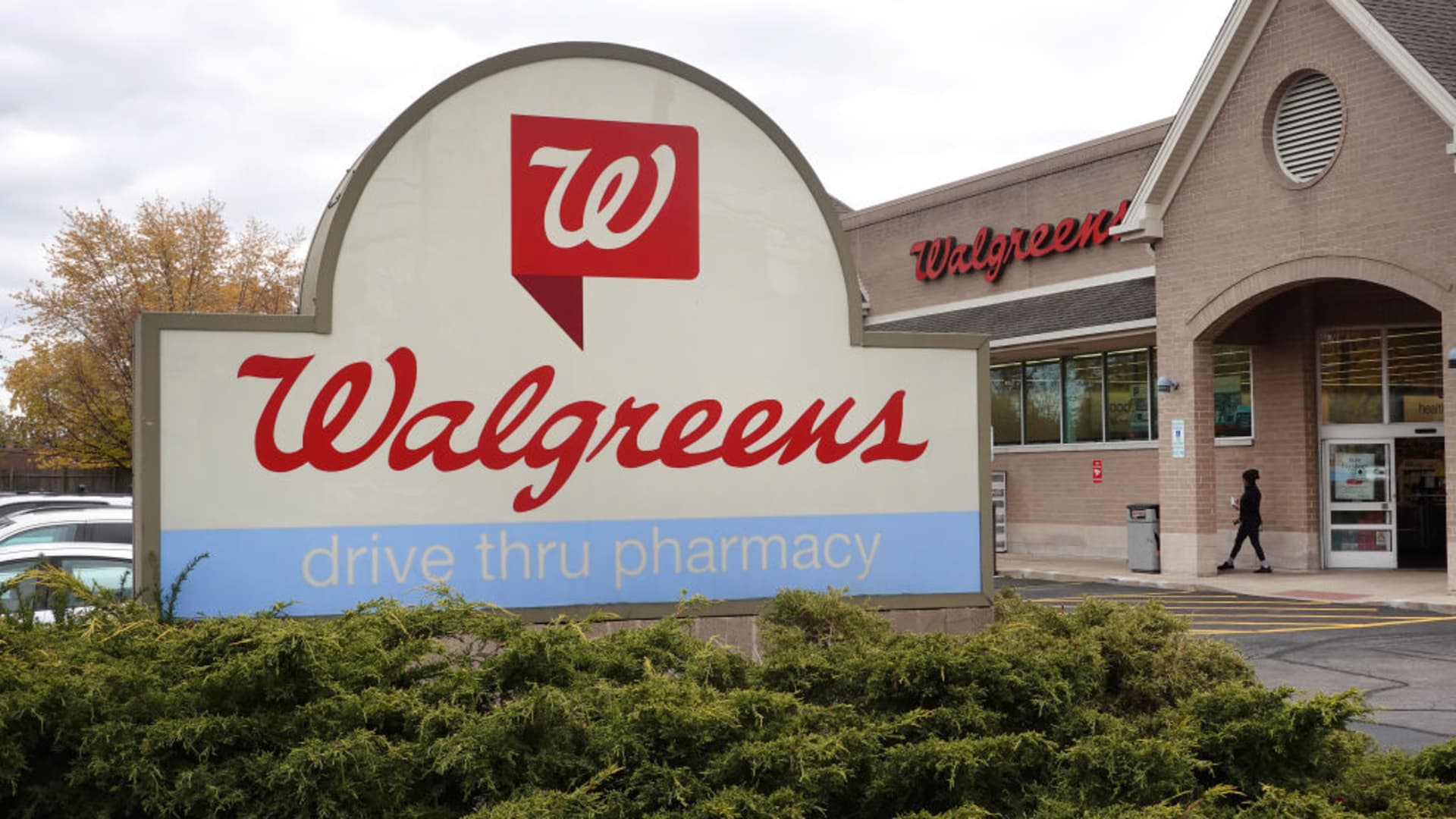Haiti's health ministry estimates that nearly 40 percent of facilities offering treatment beds, including the country's main university hospital, have closed in the past two months alone due to insecurity and looting, mainly perpetrated by gangs.
Haiti, and Port-au-Prince in particular, continues to witness unprecedented levels of lawlessness and brutality as gangs continue to fight for influence and territory.
Meanwhile, some 580,000 people are displaced within the country.
Here are five things you need to know about the current health situation in Haiti and what the United Nations is doing to help.
1. Access to health care is poor
The security crisis is having a huge impact on an already fragile health system.
Access to healthcare – as well as essential social services, hygiene facilities and psychological support in Haiti – is limited and capacity, especially in the capital, remains extremely limited.
PAHO's Dr. Oscar Barreneche meets with patients at the Hôpital Universitaire de La Paix, in Port-au-Prince.
Health centers have closed or drastically reduced operations because they are running out of vital medicines and medical supplies, some of which have been looted.
In the Artibonite department, just north of the capital, where gangs have recently become dominant, only a quarter of health facilities are functioning.
The number of available medical staff, who are often unable to come to work due to safety concerns, is also decreasing. UNICEF estimates that around 40% of health professionals have recently left the country “due to extreme levels of insecurity.”
2. Women and children suffer
The closure of hospitals and health facilities is estimated to have left some 3,000 pregnant women struggling to access maternal health services, according to the United Nations Population Fund (UNFPA).

A girl in Port-au-Prince, Haiti, learns about the importance of handwashing for her health.
The neonatal, pediatric and nutritional units that still operate are overwhelmed and the few that still operate in areas controlled by armed groups lack adequate human resources, equipment and medicines to provide essential health and nutrition services.
The UN is concerned that a child health and nutrition crisis could cost countless children their lives. Insecurity in Port-au-Prince has made it virtually impossible for supplies to reach at least 58,000 children suffering from severe wasting in the metropolitan area.
The United Nations International Organization for Migration (IOM) has also warned that violence and insecurity are affecting the mental health of displaced people, including women, causing distress and even suicidal behavior.
3. The health system is still working
The UN says two in five Haitians need urgent access to care and despite the many challenges facing the country, the health system continues to function and some patients are receiving the treatment they need.
The Hôpital Universitaire de La Paix, in Port-au-Prince, supported by PAHO, is on the front line in providing services, including the treatment of gunshot wounds, among other emergency care needs.

The Hôpital Universitaire de La Paix, in Port-au-Prince, continues to provide medical care to patients.
Hospital director Dr. Paul Junior Fontilus told PAHO that an emergency plan had been activated “to better manage the influx of seriously injured people. “Our priority is to ensure that all victims receive the immediate care they need.”
4. There are some positive developments
Port-au-Prince’s international airport had been closed due to gang activity but has resumed operations, a positive development according to PAHO’s Dr. Oscar Barreneche: “The reopening of the airport has offered a lifeline, allowing us to replenish critical medical supplies and equipment. However, the battle is far from over, and humanitarian conditions are gradually worsening for an increasing number of Haitians.”
The arrival in Haiti of the Multinational Security Support Mission (MSS) (which, although backed by the UN Security Council, is not a UN operation), will provide operational support to the Haitian police to counter gangs and boost security around critical infrastructure such as hospitals.
The UN Security Council also called on the MSS, through its support to the police, to help ensure safe and unhindered access to humanitarian aid for people who receive it.
5. UN agencies continue to respond
Together with local partners, the United Nations and other humanitarian organizations are providing life-saving assistance on a daily basis.
In places where displaced people have fled, PAHO is providing support alongside IOM, UNFPA and the World Food Programme (WFP).

Displaced people take refuge in a boxing stadium in downtown Port-au-Prince after fleeing their homes due to gang attacks.
UNFPA and PAHO are supporting three hospitals in Port-au-Prince to provide maternal health services, including emergency obstetric care. They are also providing medicines and supplies, including for clinical care of rape survivors, to 13 health facilities in the capital and surrounding region. They have deployed mobile clinics in seven displacement sites to support the sexual and reproductive health of women and girls, reaching nearly 4,500 people so far.
Thousands of dignity kits containing hygiene items and other essential supplies have also been distributed to the most vulnerable.
PAHO's Dr. Oscar Barreneche said: “We face ongoing challenges that demand unwavering support and action to ensure stable, accessible, life-saving healthcare for people in need.”
Read the latest emergency situation report from the UN Humanitarian Office, OCHA, here.

